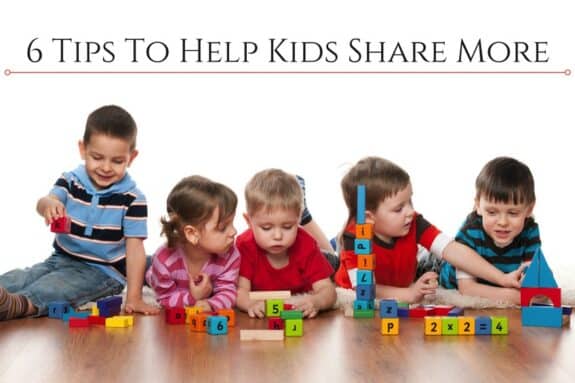Sharing is one of those strange concepts. On the one hand, adults aren’t expected to share their personal items with complete strangers, so children shouldn’t be expected to either. On the other hand, sharing is a necessary skill that children must learn. How do you find a balance, and how can you encourage better sharing habits in your child? Check out these tips for answers.
Finding a Balance
Children cannot be expected to share everything, all the time. Instead, there needs to be a balance. Sharing of coveted and special items should never be expected. Regular, everyday items are perfectly fine to share but consider the situation carefully. While it is perfectly fine to encourage your child to share during playdates or while playing with classmates or siblings, don’t feel bad for backing your child up when a random child expects yours to share and they’re unwilling to do so. In short, keep things in perspective. If you, as an adult, wouldn’t normally share in the current situation, don’t expect your child to do so either.
Practice Makes Perfect
Perhaps one of the best ways to encourage sharing in your child is to practice it with them. No, I don’t mean inviting over every child in the neighborhood. Instead, share your own things with your child – especially time and attention – and ask them to share their toys or treats with you. Make the process fun and give lots of smiles when your child does well.
Focus on Taking Turns, Rather Than Sharing
Young children – toddlers especially – struggle to understand the concept of sharing. All they really know is that they want the item that they are expected to share and that giving it away means they can’t have it. Remind them that it’s more fun for everyone when we take turns. We used timers a lot when our children were young. It helped them understand that they would get the item back, but they had to be patient and let someone else have a turn.
Using the “Right” Terminology
We parents don’t always understand the value of using the right terminology, but being the parent of a child with autism has taught me well. For example, sharing is the term that should be used for items your child will get back. “Giving” is the term that should be used for items that cannot be returned, such as food. The reasoning behind this is that children may be more reluctant to share when they don’t get an item back. Teach them that sharing is different and that the item always comes back, and they may be more likely to hand stuff over.
Plan Playdates Carefully
If your child is having a playdate, you’ll want to do some pretty careful planning. First, make sure that coveted items are put away (or don’t come along, if you’re going to the other child’s home). Next, try to find items that you have pairs of, such as two toy cars, two dolls, etc. This can make sharing a little more fun, and it ensures that the other child isn’t feeling left out when your child is a little reluctant. It also gives you a way to present choices to your child (choices give children a sense of power and control, which often results in fewer tears and tantrums). For example, you can ask your child if they’d rather play with the blue car or the red one. Once they’ve made a choice, you can encourage them to share the other one and play together.
Don’t Force the Issue
Learning how to share takes time and patience – for both you, and your child – so don’t get discouraged when things aren’t going as well as you’d hoped. Instead, keep practicing and remind yourself that we’re all just doing our best . . . And that’s all anyone can ever ask.
How Do You Get Your Kids To Share More? Tell us Below!
https://www.growingyourbaby.com/introducing-solid-foods-to-your-infant/







